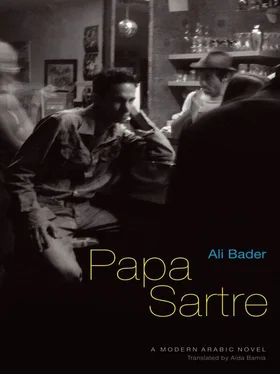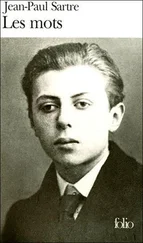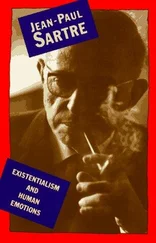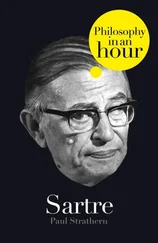Abd al-Rahman was in the habit of ordering drinks and food from Mikha the server. His table was usually filled with glasses of cognac and whiskey, pistachios, salad, fava beans, and chicken. Ismail was usually busy smelling the dancer’s dyed and unkempt hair and trying to kiss the Virgin of Existentialism’s neck. Abd al-Rahman demeaned himself before her; he would kneel in front of the dancer and flirt in a manner that naturally upset Ismail. Every now and then she would whisper something in his ear, her breath smelling of cheap cognac. He would laugh loudly and beat the table so hard that the cigarette butts in the ashtray would fly all over the table. Whenever the philosopher touched Wazzeh’s naked shoulders, she would laugh her frivolous laugh, adding to the impact of the loud music that fired up the place and tickled the philosopher’s senses. He would sing a song in French and tell his friends that it was the existentialist anthem, puzzling them with his incomprehensible French philosophy sung to a manic tune. Alcohol increased their nausea, and their eyes twinkled upon hearing this great philosophy.
During one of those evenings at the nightclub, Ismail shouted, “Women — nothing matters in life but women and alcohol. . ” No sooner had Abd al-Rahman heard these words, in fact before his companion could even finish his sentence, the philosopher stood up in anger. He wiped his forehead with his hairy, shaking hand, causing the place to come to a standstill. Everybody was terrified. He asked Ismail, “Have you forgotten existentialism, you son of a bitch? Has a dancer blotted out everything I’ve taught you?” Ismail was dumbfounded by Abd al-Rahman’s accusatory, high-strung tone. He lowered his head, and his shiny black hair fell over his eyes. He lit a cigarette with an unsteady hand, looked at Abd al-Rahman with drunken eyes, and said, “Oh no, Abd al-Rahman, philosopher of al-Sadriya, Sartre of the Arabs. I am nauseated, and this woman is existentialism personified. As for me, I am existence for existence’s sake.”
These existential words, these philosophical sentences and deep Sartrian thoughts calmed Abd al-Rahman, while the poor dancers, the truly existential creatures, looked on, puzzled by this world turned upside down. They felt reassured, however, that the matter was solved with those magical words, and so they returned to their carousal. Abd al-Rahman, in contrast, was transported by Ismail’s response into his memories of the Jussieux nightclub in the Latin Quarter. He remembered the international fair in Montmartre, dancing gypsies moving as gracefully as tobacco leaves. The gypsy songs excited him and revived the memory of the enigmatic Parisian scenery composed of existentialism, garrulity, Latin philosophies, and women’s clothes decorated with layers of red lace. He said to Ismail, “Let’s transform Baghdad into another Paris. Let’s make it a second Paris, the capital of existentialism.” Surprised, Ismail wondered how this could be done.
It was the sight of the Negro dancer from Basra that inspired in Abd al-Rahman the idea of a national existentialist movement. Her feminine, uninhibited dancing, the way she jumped up on the stage and revealed her brown body shining under the light, her thick lips and ivory white teeth, and her fishy smell — all this inflamed Abd al-Rahman’s imagination. He asked Ismail, “Who says that existentialism is not concerned with politics and national unity? Otherwise, what would Sartrian commitment mean?”
After a paralyzing silence, an angel’s silence, Abd al-Rahman ordered the waiter to call the dancers, Dam‘ al-Ain, Wazzeh, Rizan the Kurd and her Arabic music ensemble, Lamia, Munibeh, and Saniya. He then declared the establishment of a National Existentialism for the unity of the people, with Sartre’s blessing. The nightclub turned into a wrestling arena, chairs and tables were up-ended, liquor bottles smashed, and plates of appetizers flew across the hall and skidded along the floor. Customers escaped through a side door, and the prostitutes were shouting. The waiters and cashiers were yelling at the top of their lungs. The dancers swayed like madwomen to the beat of the wild music and eventually fell to the floor. Abd al-Rahman and Ismail collapsed from excessive drinking and fatigue; the waiters picked them up and dumped them outside.
3
A few hours later a taxi drove Abd al-Rahman home. He was drunk, with a cigarette still in his mouth, and his jacket hung on his finger. Ismail had to push him out of the car. No sooner had he knocked on the door than he collapsed on the stoop. Moments later, while he was still on the ground, the iron door opened slowly. He had difficulty seeing through his liquor induced haze but was able to make out Germaine standing over him in her nightgown.
The philosopher was an extreme existentialist. He was not looking for suffering in love or even the torture of impossible love. He considered love, like everything else, nonexistent, simply an unformed, unmaterialized feeling, because love is simply a part of nihilism, and nihilism alone was the essence of everything. To him, Germaine’s presence was delusive, as was her absence. Like everything that surrounded him, she was an illusion. The philosopher made fun of organic fusion in love, metempsychosis, and closeness in love because none of these things existed. For him to philosophize about love he had first to reinvent love, to purify it of the sterility that the idealists had forced onto it. He had to cleanse love of the misunderstandings, the isolation, and the disappointments it faced. According to him every failed love was a sick love — it carried nothing but ugliness. He knew that Germaine was ugly, but her ugliness was a form of beauty particular to her. After having slept with her countless times, he forgot her ugliness and even got used to it. What did belief in love bring him other than regret? Love is a lie, and only the nihilism it provokes can be considered real.
The philosopher did not lack the tactical skills to establish a sharp correlation between truth and deceit. The amazing secret to his behavior was his ability to hide his feelings and to deceive. His primary deceitful attitude was vis-à-vis his wife, whom he did not love and this is where his philosophical game in life begins. Whenever his role as a lover was pure and acceptable, he discarded the minor mistakes he made and the flowery words he uttered. He hid behind and from them, and moved constantly within this closed cycle where he found himself and to which he had become used. Yet he had to find a strategy to deal with Germaine.
He had to adopt a special system with Germaine. He would show eagerness and compliance whenever she rejected him and disregard her whenever she submitted to him; he would erase her from his imagination and fling her far away. He liked this game and spent time thinking and plotting. He took special pleasure in his thoughts as he formulated and refined them. He looked forward to the morning, when he would apply the ideas conceived the night before. The fact of the matter, though, was that it was not he who planned and plotted, but rather that he executed what Germaine had planned for him. She was very smart and made him believe that he was the master of the situation, that it was he who planned and plotted and had the last word. But it was an illusion. He was manipulated; he was an object not a subject. He had no idea that the decisions he executed were hers, not his.
Germaine was a dangerous strategist, capable of devising extraordinary plans of great consequence. She knew what she wanted just as much as the philosopher did not know what he wanted. The road to their aspirations led through opposite gates, one distant, the other difficult, complex, and requiring a great deal of effort to reach. In her genius Germaine was able to bring the two gates close enough to be fused into one. She had no intention of revealing her thinking to him, and she never talked with him about what might be her final goal, or ideal, akin to the philosopher’s idealism that he denied. Germaine was not an idealist like him, and the only abstract terms in her vocabulary pertained to geographical locations, such as the northern hemisphere and the equator. Her drive to reach her goal was not insignificant, nor was she stupid or disinterested. She was well aware that the road led either east or west, with no exit in between. She and her husband were different, with different characters. She was exceptionally self-controlled, and her uniqueness was more clearly defined than his. Although they didn’t admit it to one another, they were both aware of their shared tendency to pretend to possess things they did not have. It was instinctive. Each was aware that the other was not gifted, but Germaine was different from the philosopher because she could distinguish between the logical and the ordinary. This was the so-called experimental French thinking that Germaine understood instinctually. Pretending to ignore the discrepancies would only prolong this situation. Germaine did not confuse matters. She placed everything in its appropriate place. She had weighed matters very carefully and assessed them in a cautious, Cartesian manner. The choice was between, on the one hand, housekeeping in Paris, cleaning the apartments of wage-earners, and submitting to the whims of those whose pockets were bursting with their wealth. The other path led to marriage with the sensitive Middle Eastern fellow enamored of existentialism, an elegant and fashionable man, who belonged to an aristocratic family, and was connected with the Baghdad elite. On top of all that he had a special place in the Eastern City.
Читать дальше












